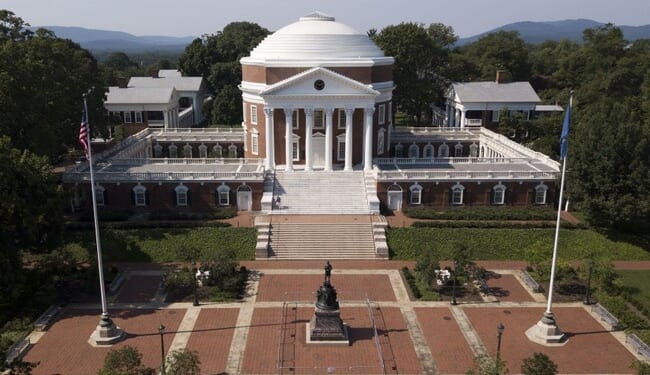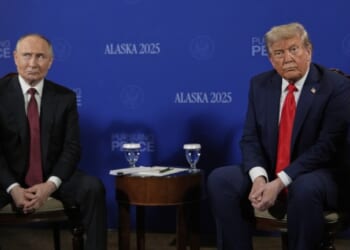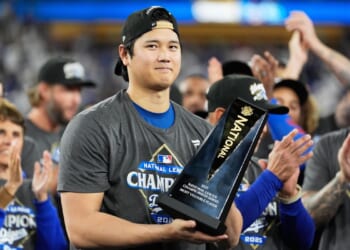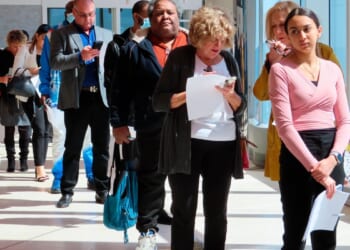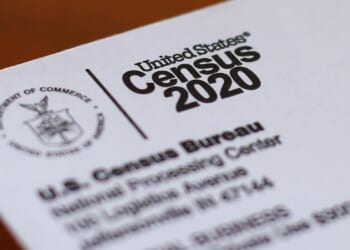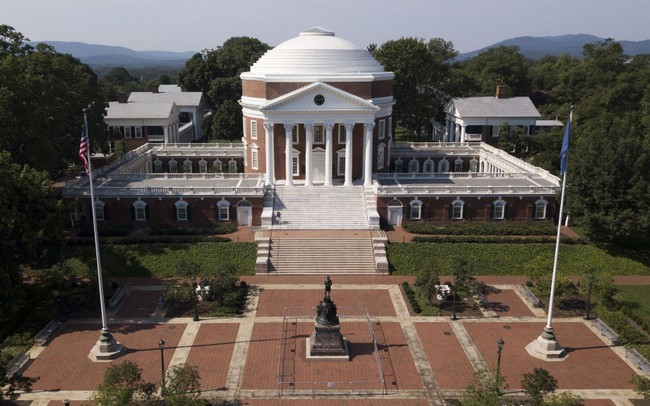
Yesterday the Trump administration announced that it had reached a deal with the University of Virginia. Unlike some of the other deals the administration has reached or offered, this one doesn’t involve UVA paying a huge sum of money.
The University of Virginia has agreed to abide by White House guidance forbidding discrimination in admissions and hiring, becoming the latest campus to strike a deal with the Trump administration as the college tries to pause months of scrutiny by the federal government…
Unlike some universities’ deals with the Trump administration, the Virginia agreement announced Wednesday does not include a fine or monetary payment, said Paul Mahoney, interim president of the university, in a campus email. Instead, the university agreed to follow the government’s anti-discrimination criteria. Every quarter, the university must provide relevant data showing compliance, personally certified by its president…
Virginia’s settlement follows other agreements signed by Columbia and Brown universities to end federal investigations and restore access to federal funding. Columbia paid $200 million to the government, and Brown paid $50 million to Rhode Island workforce development organizations.
According to a report in the NY Times, the deal with UVA was less punishing because the school’s president had already resigned.
The University of Virginia’s deal was less onerous than other agreements in large part because James E. Ryan had resigned as president of the university in June, according to people familiar with the negotiations. The administration viewed Mr. Ryan as an obstacle in its bid to root out policies focused on diversity, equity and inclusion.
At the core of this agreement is a push by the Trump administration to limit the use of race in school admissions and hiring. The Trump administration bases its view on the Supreme Court’s decision to eliminate affirmative action in admissions.
“This notable agreement with the University of Virginia will protect students and faculty from unlawful discrimination, ensuring that equal opportunity and fairness are restored,” Harmeet K. Dhillon, the assistant attorney general for civil rights, said in a statement. “We appreciate the progress that the university has made in combating antisemitism and racial bias, and other American universities should be on alert that the Justice Department will ensure that our federal civil rights laws are enforced for every American, without exception.”
But critics argue the administration’s view goes farther than the Supreme Court case.
By agreeing to abide by the Justice Department’s antidiscrimination guidance, the deal requires U-Va. “to adopt a view about what the law requires where the law in that area is uncertain,” said Deborah Hellman, a professor at the university’s law school.
Richard D. Kahlenberg, director of the American Identity Project at the Progressive Policy Institute, called the U-Va. deal “pretty outrageous” and said the federal memorandum “provides a gross misreading” of the landmark 2023 Supreme Court case on affirmative action. He said the guidance says “‘criteria like socioeconomic status, first-generation status, or geographic diversity must not be used’ if a university’s goal is to further racial integration on campus.” But he said the high court’s decision “outlawed the means of using racial preferences, not the ends of achieving the benefits of a racially diverse student body.”
That’s one view, but as I’ve pointed out before, there is some evidence that at least some schools were using various proxies for race as a way to sidestep the Supreme Court’s affirmative action ruling. The fact that some schools showed no change in admission demographics in the year after the case was handed down certainly surprsied a lot of people and was considered tantamount to cheating by some critics. Last year SFFA, the group that brought the Supreme Court case, threated further legal action against some schools.
On Tuesday, Students for Fair Admissions sent letters to the schools questioning whether they were complying with the rules laid out by the Supreme Court. Princeton, Duke and Yale also saw minor differences in Black and Hispanic enrollment in the first class of students admitted since the court struck down race-conscious admissions…
“Based on S.F.F.A.’s extensive experience, your racial numbers are not possible under true neutrality,” the letters, signed by Edward Blum, the president of Students for Fair Admissions, said. It added: “You are now on notice. Preserve all potentially relevant documents and communications.”
UVA is the first public university to make such a deal. The three previous schools who made agreements with the administration—Columbia, Brown and the University of Pennsylvania—are all private. The Trump administration is still negotiating with Harvard and with the UC system in California.
Editor’s Note: The Schumer Shutdown is here. Rather than put the American people first, Chuck Schumer and the radical Democrats forced a government shutdown for healthcare for illegals. They own this.
Help us continue to report the truth about the Schumer Shutdown. Use promo code POTUS47 to get 74% off your VIP membership.

